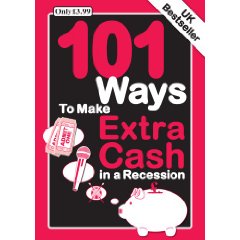When considering whether to move to a new employer, many feel that it is important to ensure that they maximise the amount of increase in income that they achieve.
Many would not consider moving to a new job for just £1,000 or £2,000 extra per year.
But it is the point of this article that a small increase in income can make a BIG difference.
When we consider the normal income and expenditure profile for a family we can roughly divide it’s expenditure into “fixed” and “variable”. An example of a fixed expense would be a rent or mortgage payment. It is generally fixed in relation to an increase in income – if you earn an extra £2,000 per year then generally you may stay living in the same property. A “variable” expense on the other hand is an expense which does or can change with income – for example – entertainment – if you’re earning more you may have a tendency to go out for meals, cinema, holidays more, therefore spending more on entertainment as your income rises.
So having considered this, we can see that all people have “fixed costs” and “variable costs” of living. The difference between total expenditure and total income is therefore what we like to think of as “disposable income”.
Having assessed your income and expenditure (see this article on cashflow forecasting) you will arrive at a figure for your “disposable income”.
For example, say your monthly take home pay, after tax and national insurance is £2,000, you have fixed costs of £1,200 per month and variable costs of £500 per month.
This gives total expenses of £1,700 per month and a disposable income of £300 per month.
Now let’s say for arguments sake that you could move to another job which earns you just another £100 per month after tax (£1,200 per year). Many would not consider taking this course of action, yet when we consider this in relation to your “disposable income” you have now seen an increase in your “disposable income” of £100 per month, from £300 to £400 – a 33% increase in disposable income!!!
This is an example of “leverage” where a small change in one variable results in a large change in another variable.
Now you might not get very excited about an additional £100 per month, but what if it was an extra £250, £500, or even £1,000 per month – what could you do with that additional income? I’m sure you could let your imagination run wild on this one.
Could you move to another job for an increase in income, or do something in your free time to earn more money????

On the other side of the “earn more” coin, if you keep your discretionary spending the same despite the increase and save it instead, over 25 years compounding at 4% per year (a reasonably low interest rate historically), you’d retire with £51,855.71 in the bank.
Does THAT make it seem worth it?
Decide to do this from the age of 18 anyway up to 65, you’d finish up with £167,198.
Yikes.
I agree – the sooner you start, the more you’ll end up with.
It’s not the fact that starting sooner at say £25 per month makes such a big difference (after all it’s an additional £300 invested) – it’s the fact that the big lump at the other end has another year to grow.